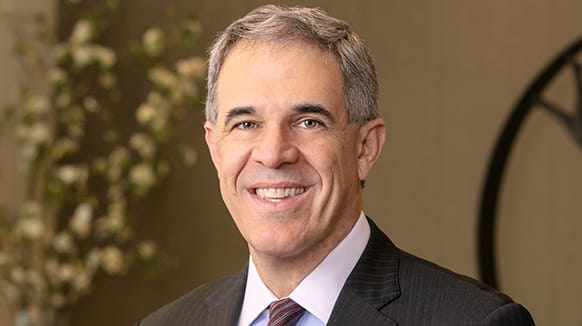Haynes Boone Partner Larry Pascal, co-chair of the firm’s International Practice Group, and Foreign Associate Natalia Cosio Ondiviela participated in a Q&A for The Dialogue’s “Energy Advisor” report, addressing: “What Would AMLO’s Power Sector Plan Mean for Mexico?”
Question: Following meetings in January in Mexico City with President Andrés Manuel López Obrador and other top Mexican officials, U.S. Energy Secretary Jennifer Granholm expressed concerns about Mexico’s plan to tighten state control over the electricity market. Granholm later said she was encouraged by Mexico’s openness to addressing those concerns. Reforms López Obrador is seeking would guarantee state-run electrical utilities have a market share of more than 50 percent. The Mexican president is also investing heavily in fossil fuels at a time when countries around the world are moving toward more renewable energy. What does López Obrador hope to achieve with the power sector reforms? Will they deter the development of renewable energy in Mexico, as critics suggest? What will be the effects on U.S. investments in the country, and how might Mexico seek to resolve U.S. concerns?
Answer: Larry B. Pascal, member of the Energy Advisor board and partner at Haynes Boone: “Mexico’s current administration seeks to reduce private sector involvement in the power market through a regulatory reorganization that places more emphasis on the state-owned Federal Electricity Commission (CFE). The government asserts its approach will result in a more reliable power system. If the energy reform is approved as currently proposed, the CFE will have a guaranteed market share of at least 54 percent, and private power generation will be capped at 46 percent. Additionally, the reform would cancel all or some of the previously granted private generation permits (subject to finalization of the legal text). The reform does not address what happens to the canceled operations and investments. It would arguably reduce the development of renewable energy in Mexico because the CFE relies more on nonrenewable energy and does not have dramatic plans to change its course in this respect. Currently, 64 percent of the CFE’s power generation is nonrenewable, and only 69 of the CFE’s 192 generation plants produce clean energy, primarily via hydroelectric, geothermal and nuclear plants. Moreover, the CFE’s 2021-2025 business plan does not provide for new investments in renewable energy projects. The reforms contribute to uncertainty for U.S. investors in the Mexican power sector. It is unclear at this time as to the process for reapplying for generation permits and whether some grace period can be invoked for private generators and their customers. Mexico could seek to resolve U.S. concerns by gradually growing and strengthening the CFE through investment in energy projects rather than the contemplated reform.”
To read the full article, click here.